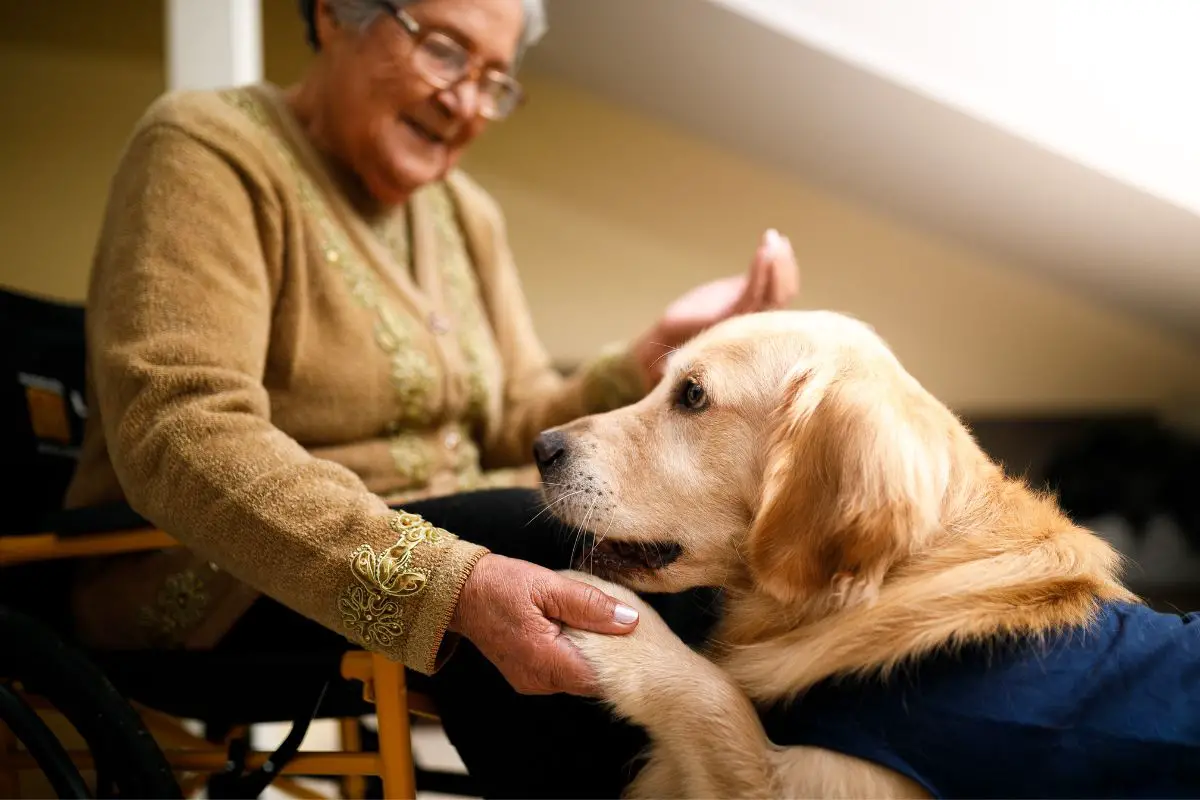Are emotional support animals allowed in hotel rooms? The answer is yes, but only under certain circumstances.
Emotional support animals (ESAs) are pets that provide comfort or therapy to their owners.
They include dogs, cats, birds, rabbits, ferrets, guinea pigs, hamsters, reptiles, and other animals.
According to the American Hotel & Lodging Association, ESAs are permitted in public spaces such as restaurants, bars, theaters, and retail stores.
In addition, they are also allowed in hotel rooms. However, there are some restrictions on how these animals can be used.

What Do You Need To Know?
The first thing you need to know about ESAs is that they must be trained for a specific purpose.
This means that they have been taught to calm an owner who suffers from anxiety, depression, post-traumatic stress disorder, obsessive-compulsive disorder, phobias, and/or panic attacks.
The second thing you should know is that your ESA cannot cause any damage to property or harm anyone else. If it does, you could face criminal charges.
Finally, you will want to make sure that your ESA has received all of its required vaccinations and is free from health issues. These include heartworm disease, parasites, and diseases such as rabies, and hepatitis.
If you decide to allow your ESA into your room, here’s what you need to do:
• Make sure that your ESA is properly trained.
• Keep your ESA in a carrier when you travel.
• Do not let your ESA roam freely around the room.
• Be careful if you plan to take your ESA out during your stay.
• Never leave your ESA unattended.
• If you have concerns about your ESA’s behavior, call the front desk immediately.
Short Answer: Are Emotional Support Animals Allowed In Hotels?
The short answer is yes. There are provisions under the Fair Housing Amendments Act of 1988 that allows for housing assistance for disabled persons.
A disability does not mean you need a wheelchair or even any special equipment. If you meet the definition of a disabled person, then you qualify for housing assistance.
Your landlord must give you reasonable accommodation if he/she knows you are disabled and cannot afford to pay rent.
Fortunately, more and more hotels have become accepting of ESAs, due to the wealth of information available about what it is that these pets do to help support the mental and emotional well-being of their owners.
Even within pet-friendly hotels, there may be specific restrictions on the type and/or size of animals that can be brought onto the property.
You should always check the specifics before bringing your ESA to stay at a particular establishment.
Depending on the policy in place at the time, you may need to shell out additional fees to ensure that your ESA is given proper accommodations while staying at the hotel.
These costs may include providing a better resting space for your pet, cleaning up after your pet, and possibly even paying for any necessary vet care.
Your Rights (Legal)
There are regulations surrounding emotional support animals. These regulations were put in place to prevent discrimination against those with disabilities.
However, these regulations don’t apply to all types of accommodations.
For example, hotels are not considered “residential housing,” so this doesn’t apply to them.

Their Rights (Legal)
A hotel is not required to allow an animal in its facilities. Some hotels will accept them, while others will not. If a hotel does allow animals, it must follow local laws and regulations.
There are no federal laws protecting emotional support animals, so if a hotel denies you access because of your animal, there isn’t much recourse available.
A doctor’s note won’t change the situation. You could try calling the front desk and asking if they have any questions about your pet. If they refuse to let you stay, then you should consider finding another hotel.
Restrictions Could Apply
Pets aren’t allowed everywhere, but if you’re traveling with a dog or cat, you should be prepared to pay a fee and abide by local restrictions.
Some hotels will charge a per-night fee, others may ask for a deposit before allowing the animal inside.
At the same time, there are certain places that you’ll be unable to stay unless you bring your furry friend along. For instance, many chain hotels prohibit dogs from entering the lobby area, even if they’re well-behaved.
Some hotels also require that your pet must remain in its room while you’re away.
Finding You A Pet-Friendly Hotel
Since more hotels have become accepting of pets, you are more likely to be spoiled for choice. A simple Google search should return a list of hotels that accept pets.
These include well-known brands like Best Western, Comfort Inn, and Fairmont Hotels and suites. If you are looking at smaller chains, check out reviews on TripAdvisor.com.
Alternatively, ask your friends and family who have traveled with their pets before, and see if they have any recommendations. Once you’ve compiled your list, read through the details of each hotel’s pet policy carefully.
Check for any breed or size restrictions, as well as whether there is an additional fee for the accommodation.
Get your ESA letter today!
We understand how frustrating it can be when you apply for an ESA and get rejected. That’s why we made our application process fast, simple, and free. You just need to complete 3 easy steps.

Final Thoughts
If you want to travel with your emotional support animal, make sure you know what rules apply to where you’re staying. The last thing you want is to find yourself stuck somewhere without access to your pet.
We hope that this article has given you a thorough answer about whether you’re allowed to take your emotional support animals with you to any hotel in your area, the majority of the time, the answer will be yes, and you should be able to bring your pet with you because of how they are specially trained to keep you safe.
- Are Antlers Safe For Dogs? - January 14, 2024
- Can Dogs Eat Honey Nut Cheerios? - December 23, 2023
- Natural Deworming Remedies for Your Dog - December 18, 2023








